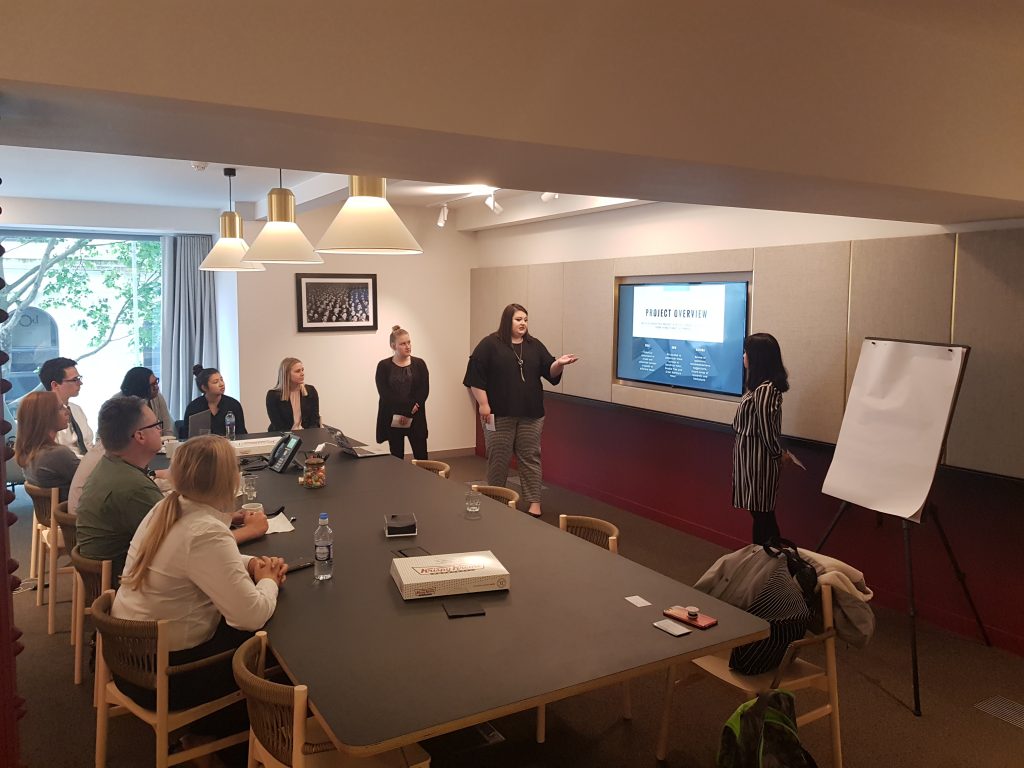Business Practicums
Business Practicums are action learning projects designed to provide students with an opportunity to manage a project for a real client during their stay in London. They are team based and can be between four and twelve weeks duration, depending on the nature of the project and the number of hours per week devoted to it. On short, summer programs students would be expected to devote 12 – 15 hours per week to the project. Semester students might undertake this as one of four course options, giving 5 hours per week to the project. Recent Projects: The Wall Street Journal, Victoria and Albert Museum, Tate Gallery, Hypervsn, Rightmove, Leonard Cheshire Disability (UK Charity for disabled people), Harrods Media, Chargit, Great Ormond Street Hospital and The Wellesley Hotel.

Practicum Format
The precise nature of the project can vary enormously. The common denominator is a genuine need for help with a problem or appreciation of the value of some independent research beyond the resources or capabilities of the organization. This may be a general management problem, a marketing issue, a finance matter or any number of specific challenges.
Certain characteristics are, however, common to all Practicum projects.
-
-
- Teams of four to six students.
- Supervision by an approved faculty member, who is also available for consultation throughout.
- An initial briefing meeting with the company representative to determine the issues, discuss resource requirements etc.
- Facilities at LEB for desk research, telephone interviews, internet access etc.
- Instruction, where necessary, for questionnaire design and facility with other research instruments.
- Regular meetings with the client to report progress and ensure we are ‘staying on track’.
- A final, formal presentation of results and recommendations with feedback from the client on the usefulness of findings and processes.
-
Evaluation
Students will be required to submit two papers for grading purposes.
-
-
- (a) A summary of the project requirements in week 2 (detailing the nature of the organisation, the perceived tasks and the proposed modus operandum of the team) and a final report in week 4 (including the final findings and recommendations to the company).
- (b) A reflective paper at the end of the project, addressing issues of group dynamics, lessons learned, usefulness of the exercise for the client etc.
-
Additionally, feedback from the company will be used by the instructor, together with observation of performance in group meetings and at the final presentation. The quality of questionnaires, spreadsheets and other research instruments will also be assessed together with the final group PowerPoint presentation.
Note that expectations will be higher for graduate students in the team and the precise weightings of the elements above may be different from project to project but will always be agreed in advance.